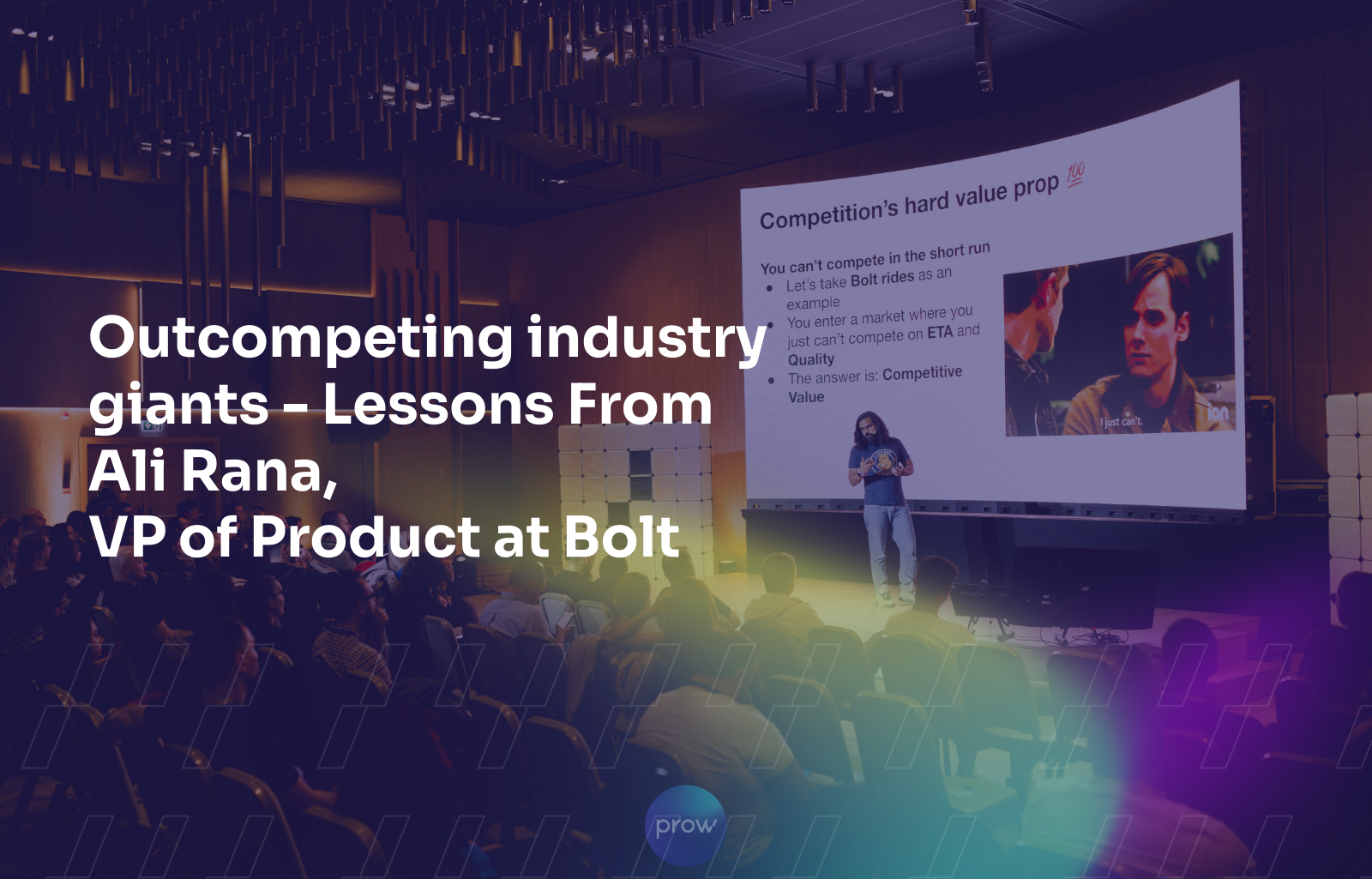In the fast-paced world of e-commerce, competing with industry giants like Amazon might seem impossible.
But Ali Khalid Rana, VP of Product at Bolt, proves that it’s not only possible—it’s being done. With years of experience in startups and scale-ups, Ali has learned that winning in this space isn’t about being the biggest. It’s about being the smartest, the fastest, and the most connected to your customer.
In his talk, Ali shared his journey of building competitive products in markets where giants already dominate. He highlighted the challenges, but more importantly, the opportunities that come when you focus on solving the right problems, deeply understanding local needs, and fostering real relationships with customers.
Here are ten powerful strategies, drawn from Ali's experience, that any startup can use to stand out and win—even when the odds seem stacked against them.
1. Solve the Right Problems
Big players often cast a wide net, which means they might overlook nuanced, local issues. Startups can win by zooming in—identifying specific pain points and addressing them better than anyone else. This creates a unique value proposition that resonates deeply with your target audience.
2. Use Local Insights as a Superpower
Understanding the local market isn’t just a nice-to-have—it’s a major advantage. Whether it’s adapting to cultural norms, pricing for local economies, or using the right language and tone, these “small” details create a big impact. When a product feels made for the people using it, loyalty follows.
3. Build Real Customer Relationships
Startups can offer the kind of personalized support and communication that massive companies simply can’t scale. Being available, responsive, and genuinely caring builds trust—and trust builds long-term customers. In a world of automation, human connection is a competitive edge.
4. Start Small, Win Big
Trying to beat a giant at everything all at once is a recipe for burnout. Instead, start with a niche. Find one area where you can truly excel—whether it's a geographic region, a customer segment, or a specific use case—and grow from there.
5. Offer Comparative Value
Let’s face it: startups may not always be able to compete on price or speed. But they can offer value in other ways—like an amazing user experience, thoughtful design, or community involvement. Understand what your audience truly cares about and double down on that.
6. Go Local-First
From product features to branding and beyond, align your business with local customs and preferences. Local-first platforms feel more intuitive to users, increasing satisfaction and retention. Supporting local languages, payment methods, and holidays can make all the difference.
7. Move Fast, Stay Agile
One of the biggest startup advantages? Agility. Unlike large corporations burdened with complex processes, startups can pivot quickly, experiment more freely, and iterate based on real-time feedback. Use this speed to your advantage.
8. Run Lean and Smart
Efficiency isn’t just about saving money—it’s about focusing your resources where they matter most. Automate where you can, outsource what isn’t core, and keep your internal team focused on what truly drives growth and innovation.
9. Build a Brand People Love
People don’t just buy products—they buy into brands. Create a brand identity that stands for something, tells a story, and makes people feel something. This emotional connection can set you apart from faceless giants.
10. Collaborate to Amplify
You don’t have to do it all alone. Strategic partnerships—with other startups, local businesses, or even influencers—can expand your reach and improve your offering without draining your resources.
Competing with a company like Amazon may sound intimidating, but as Ali Khalid Rana shows, it’s entirely possible—and incredibly rewarding.
Startups don’t need to outspend or outscale the giants. They just need to outsmart them. By focusing on local needs, staying agile, and building meaningful connections, the underdogs can (and do) win.
In the end, it’s not about being the biggest player in the game. It’s about playing the smartest game.

